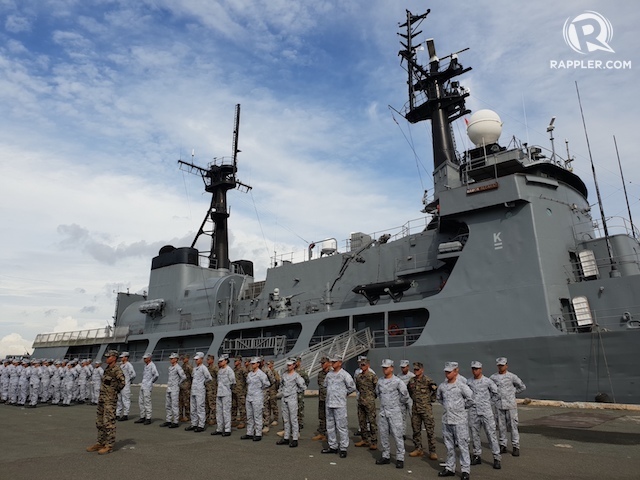The Malaysia-Philippines’ co-operation contributes in efforts to tackle cross-border crime threats such as the kidnap for ransom (KFR) by the Abu Sayyaf Group and its network from southern Philippines on the east coast waters of Sabah, Malaysia.
Eastern Sabah Security Command (ESSCom) commander Datuk Hazani Ghazali said sharing of intelligence information with the Philippines enabled monitoring of KFR elements for interception at sea.
"From January to April, ESSZone security forces foiled two KFR attempts targeting the fishing community," he told Bernama.
He said the KFR groups carried out their crimes during the day and at night in the two attempts.
"However, they were thwarted after we were tipped off by the Philippines on the early movements of the KFR groups from the southern Philippines, and we set our assets into motion to intercept them," he said.
Hazani said ESSCom also provided information to the Philippines’ security forces on the abduction of five Indonesian fishermen in Tambisan waters, Tungku, Lahad Datu in January, believed to be by members of the Abu Sayyaf group.
Later, he said, Philippines’ security forces actively pursued the victims and several series of clashes broke out with the Abu Sayyaf network from February to April, following which three members of the Jemaah Group were shot dead.
Security forces in Sabah endeavoured to curb cross-border criminal activities involving smuggling of goods, illegal immigrants and KFR, he added.
Eastern Sabah Security Command (ESSCom) commander Datuk Hazani Ghazali said sharing of intelligence information with the Philippines enabled monitoring of KFR elements for interception at sea.
"From January to April, ESSZone security forces foiled two KFR attempts targeting the fishing community," he told Bernama.
He said the KFR groups carried out their crimes during the day and at night in the two attempts.
"However, they were thwarted after we were tipped off by the Philippines on the early movements of the KFR groups from the southern Philippines, and we set our assets into motion to intercept them," he said.
Hazani said ESSCom also provided information to the Philippines’ security forces on the abduction of five Indonesian fishermen in Tambisan waters, Tungku, Lahad Datu in January, believed to be by members of the Abu Sayyaf group.
Later, he said, Philippines’ security forces actively pursued the victims and several series of clashes broke out with the Abu Sayyaf network from February to April, following which three members of the Jemaah Group were shot dead.
Security forces in Sabah endeavoured to curb cross-border criminal activities involving smuggling of goods, illegal immigrants and KFR, he added.














